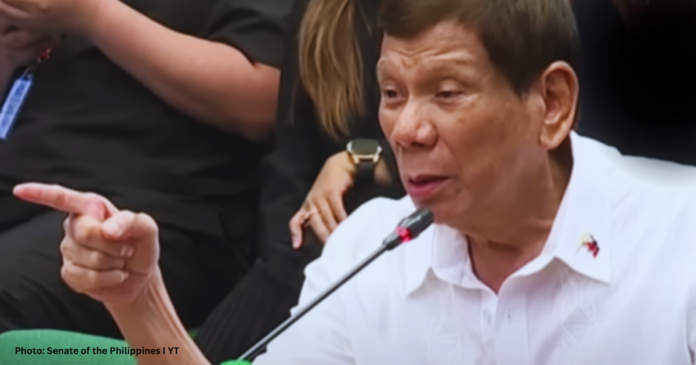Analysts have compared Duterte’s approach to that of other global strongmen, such as Russia’s Vladimir Putin and Turkey’s Recep Tayyip Erdoğan, who similarly adopt authoritarian methods to address societal issues.
“Provocative, but popular.”
This was how BBC described Rodrigo Roa Duterte. As the 16th president of the Republic of the Philippines, Duterte rose to popularity not just because of his symbol as head of state, but his hard-nosed style of leadership, demeanor and unique personality kept him in the public eye well after his term.
This was clear during his October appearance at a Senate hearing on his administration’s anti-drug campaign. Since he was invited to explain the campaign’s controversial tactics, Duterte made several shocking admissions, including instructing police to “kill” if suspects resisted arrest.
His remarks reignited the debate over his hardline policies and underscored the deeply polarizing impact of his leadership, which still divides the nation and captures public attention.
Duterte’s road to the presidential seat in 2016 was marked by his brash personality, populist rhetoric, and an outsider perspective that distinguished him from traditional Filipino politicians. He stunned and intrigued the public by making sensational, often dark statements, such as referencing the rape and murder of an Australian missionary in a prison riot and saying that he’d kill his children if they used drugs.
These remarks were part of a campaign that promised tough measures on crime and corruption, resonating with Filipinos disillusioned by what they saw as an ineffective political establishment. His appeal as an “outsider” from Mindanao, along with his unfiltered communication style, won him strong support from voters looking for a break from the status quo.
Duterte’s popularity only grew during his term, going for the “Mayor of the Philippines” persona, and even amid economic challenges brought by the COVID-19 pandemic. Despite implementing strict lockdowns that strained the economy, Duterte retained high approval ratings, reaching a notable 94% in a 2020 Pulse Asia survey. This loyalty stemmed from his image as a decisive leader who tackled issues head-on, particularly through his infamous drug war.
Although the campaign has been condemned internationally for human rights abuses, many supporters viewed it as a necessary step toward public safety. Analysts have compared Duterte’s approach to that of other global strongmen, such as Russia’s Vladimir Putin and Turkey’s Recep Tayyip Erdoğan, who similarly adopt authoritarian methods to address societal issues.
Throughout his presidency, Duterte’s “The Punisher” persona manifested in policies that often bypassed traditional checks and balances. His “war on drugs” operation, which led to thousands of suspected drug offenders’ deaths, received both praise and criticism: some commended him for restoring “order,” while others condemned the human rights costs.
This approach to governance solidified his image as a leader who valued law and order over procedural norms, adding to his appeal among Filipinos tired of inefficiency and corruption. Even The Diplomat and Manila Standard highlight that his no-nonsense approach and relentless focus on crime created a perception of effective, albeit harsh, leadership in times of crisis.
Duterte’s legacy has profoundly influenced Philippine politics, demonstrating that voters are drawn to leaders who promise swift solutions to entrenched issues. His style, often called “Duterte-speak,” mixes provocative rhetoric with a tough stance on governance, setting a precedent that future leaders may emulate.
While the nation grapples with the consequences of his policies, his lasting impact is undeniable. Duterte’s approach reflects a powerful alignment with a public that values strength and decisiveness, marking him as a figure who transformed Philippine politics and left an indelible mark on the country’s democratic landscape.



